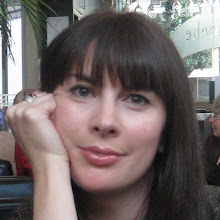The preferred mythology about academia states that innocent students arrive, largely untainted by politics, and are corrupted into radical views through the influence of their left-wing professors, who use the lecture theatre as a bully pulpit for postmodern relativism and politically correct thought.
Three recent American studies suggest that this myth is just that – a myth. Despite much of the neo-conservative rhetoric about Barack Obama being based on his so-called ‘elitism’, which is shorthand for being too well spoken and over-educated, the studies, one of which has been recently published in PS: Political Science and Politics, the Journal of the American Political Science Association, draw similar conclusions: that the politics of academics have little or no impact on those of their students, even in political science departments. It seems that other old myth – peer pressure is to blame. Professor April Kelly-Woessner (a liberal Democrat) and her husband, Professor Matthew Woessner (a conservative Republican) found that while students do tend to move towards left-wing politics while at university, this is largely because of the influence of their peers and what was going on outside the classroom.
What was going on outside the classroom? Well, in the last six years, there’s been an unjustifiable war and a consciously anti-elitist president. Before that, in the nineties, there was another war, and another neo-con, slightly more elitist president. And overarching all of that has been the ‘culture wars’, from whence the basis for these studies originates. Since the late 1980s, conservative thinkers and think tanks have tended towards a position that equates education with liberalism, wishy-washy thinking and weasel words. Thus fell the legacy of conservative intellectuals such as William F Buckley and Daniel Patrick Moynihan, whose contributions to American society were once necessary reading for anyone at all interested in the United States, particularly US foreign policy. Since the ascendancy of Bushes senior and junior, conservatism has become synonymous with anti-intellectualism, in part because of the perceived influence of radical professors on the politics of right-thinking Americans. Whole conservative colleges had to be established to protect the little darlings against having their prejudices challenged.
All that has now changed: the election of consciously intellectual and well-spoken Barack Obama, and the serendipitous release of these studies, suggests that perhaps intellectuals may be in for some better press. Obama’s embrace of the education that made him who he is today, like his unashamed embracing of the less than PR perfect influences in his life – Rev. Jeremiah Wright, his grandmother – suggests that we might be able to talk now about education now outside the premises of the culture wars, and instead talk about what exposure to ideas can do for a young mind.
Which brings us to New Zealand. We’ve gone the other way – having failed to re-elect a consciously intellectual woman and her academic economist deputy – we’re now depending on an ‘aw shucks’ businessman and a Southland farmer who likes to downplay his own intellect to manage us out of a worldwide crisis. John Key is a very intelligent man – but he likes us to forget that, because New Zealanders seem stuck in the midst of the culture wars, perpetually informed by that old chestnut that those who can do, and those that can’t teach. Obama’s election has reconfigured the traditional discourse of power – and has relocated presidentiality in the person of a black man, a community organiser, a reconciler. Let’s hope that in New Zealand we can similarly relocate intellect into the discourses of power – and embrace leaders who are not ashamed to talk of things other than imports and short-selling.
Subscribe to:
Post Comments (Atom)

Quote: 'John Key is a very intelligent man' - citation needed
ReplyDelete